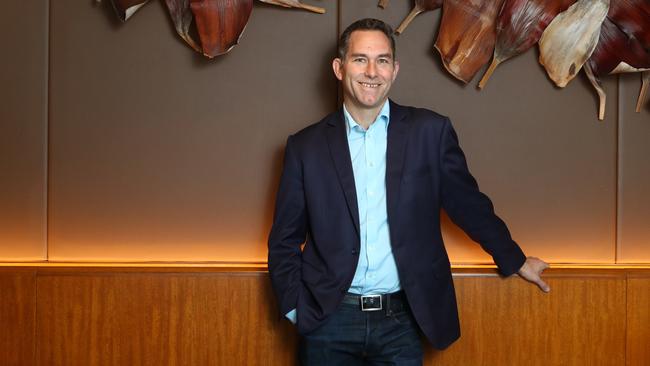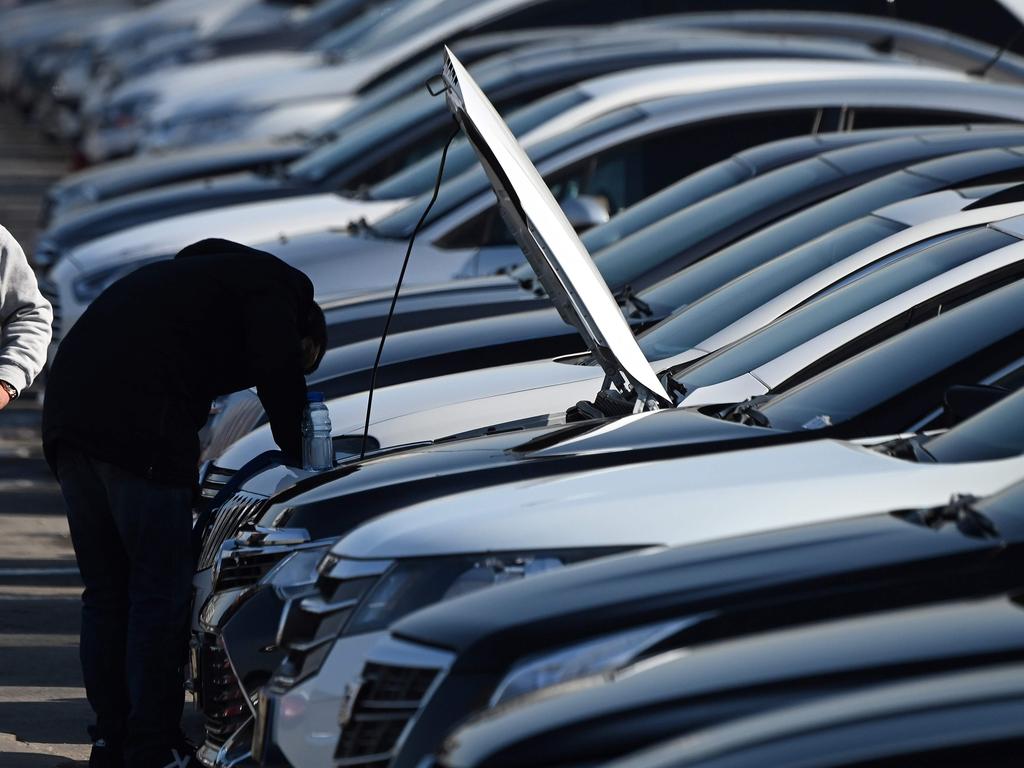
As revealed by The Australian on Thursday, ASX-listed lender Liberty Financial and partner private equity firm TPG are firming as the frontrunner to buy Westpac’s auto finance business.
The sale process for the bank’s auto loan unit is in the final furlong and is most advanced in Westpac’s divestment pipeline in its specialist division.
Sources said The Carlyle Group was still around the Westpac auto finance sale process, but the Liberty-TPG partnership was considered at the front of the pack.
The Westpac specialist unit is run by Jason Yetton and is also seeking to offload bank businesses including its life insurance division, investment platform and superannuation arms.
Westpac’s life insurance divestment process is into the second round with final bids expected to be lobbed in June. Resolution Life – which snapped up AMP’s life insurance division – and Dai-ichi-owned TAL are through to the next stage and will be weighing whether to proceed to a final and binding offer.
Westpac’s board and chief executive Peter King have ramped up the scope of the asset sell-off after the bank was shaken by Austrac’s damning legal action and last year agreed to pay a record $1.3bn penalty.
Westpac is joining its rivals in retreating to its core operations, and is also separately assessing a demerger of its New Zealand business. NZ accounts for about 15 per cent of the group’s total cash earnings, excluding notable items.
On the life insurance sale, Westpac has found it challenging given it is the last major bank to exit the business. AMP also sold well ahead of Westpac.
Westpac in December agreed to sell its Pacific operations to Kina Securities and in the same month inked a deal to offload its general insurance arm to global firm Allianz for $725 million.
That is despite Allianz being embroiled in regulatory compliance issues.
In the same month as Allianz’s acquisition of Westpac’s general insurance arm was announced, the Australian Prudential Regulation Authority said it would cut a $250m additional capital charge on Allianz by $100m. That was due to Allianz’s “progress in addressing issues identified in the insurer’s risk governance self-assessment”.
Then in March, Allianz agreed with APRA to accept a court enforceable undertaking, acknowledging past risk and compliance weaknesses and committing to finish rectifying the “serious issues”.
Back to Westpac’s auto finance arm, the bank is focused on retaining the bulk of the existing $11.1bn auto finance book, with the sale process largely centring on the ability for a buyer to sell new loans. The sale also includes the relationships with car distributors.
The unit – which provides vehicle finance, dealer finance, business car leasing and novated leasing – saw its loan book decline over the 12 months ended March 31. A year earlier it stood at $12.5bn.
Liberty listed on the ASX last year and has a market capitalisation of $2.2bn. The size of Liberty’s contribution to any purchase obviously depends on how much TPG tips into a transaction, which has yet to be formally signed off.
Liberty already has some exposure to the auto loans sector as it provides secured prime and custom lending for vehicles purchased privately and through dealerships.
It has also made a number of bolt-on acquisitions and strategic investments over the past 15 years.
The lending company’s latest shareholder presentation highlighted an investment in fintech Avenue, which wants to become a business bank. Avenue’s website suggests it has applied to the APRA for a restricted banking licence.
Liberty founder Sherman Ma has a seat on the Avenue board and the non-bank lender has committed to tipping in significantly more capital, when the start-up gains authorised deposit taking institution status.
Besides TPG, other private equity firms that were separately linked to the Westpac auto loans sale include Bain Capital Credit, KKR & Co and Cerberus. Some of those firms had partnered with non-bank lenders to pursue the Westpac portfolio.
Dataroom in March reported that as many as 36 parties had signed nondisclosure agreements to enter Westpac’s transaction dataroom for the auto finance sale.
Morgan Stanley is advising Westpac on the auction process.
AMP split
The hard slog on AMP’s demerger of its $53bn prized private markets division is underway, and this column understands a dual listing is being considered.
Given AMP – the parent entity – is listed in Australia and NZ it may be that it is just replicating that structure. Any other moves onto other bourses would be interesting, given private markets makes a sizeable proportion of income offshore.
AMP’s decision to spin-off the private markets unit – which houses infrastructure and real estate investments – has also triggered the exit of controversial executive Boe Pahari.
He was demoted last year when details of a prior sexual harassment claim became public.
AMP’s new plan sees the 172-year old company retain a stake of up to 20 per cent in the spun-off private markets business. The demerger transaction is expected to be complete in the first half of 2022.
Newly appointed AMP CEO Alexis George’s last day in the ANZ office, as deputy boss, is Friday. She is expected to start at the wealth and asset management group in the third quarter, and certainly has a challenging task ahead.
AMP’s shares closed at a record low of $1.07 on Thursday.








Westpac’s divestment spree is gathering real momentum with several chunky asset sales likely to be agreed in coming months.